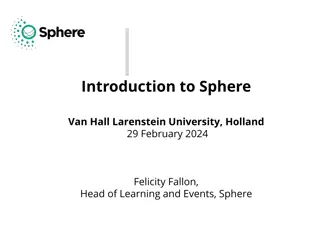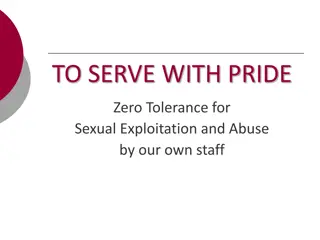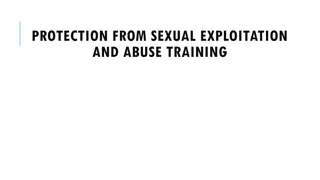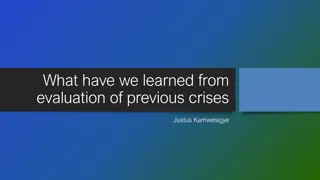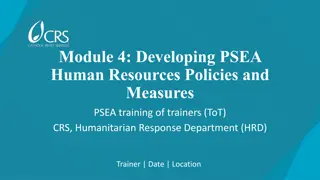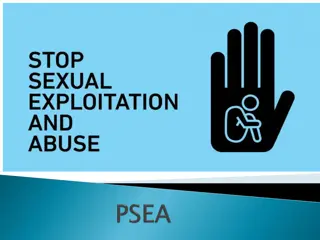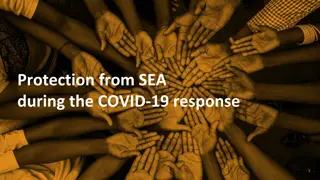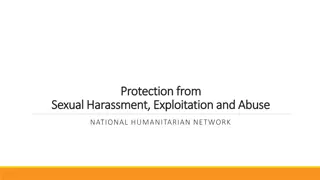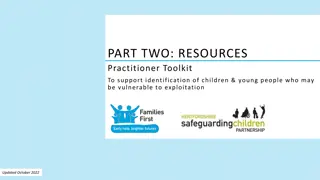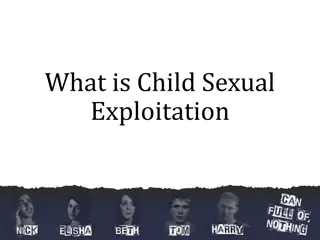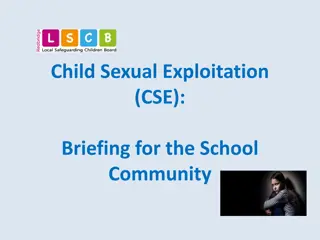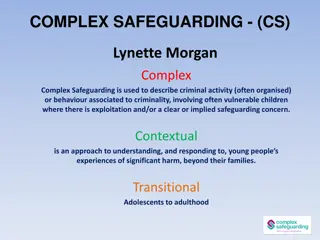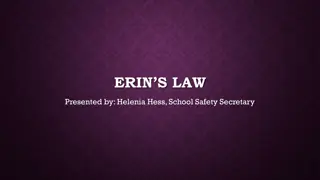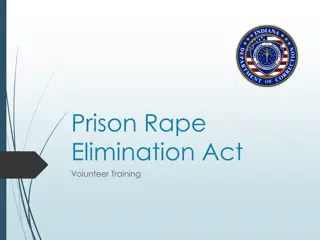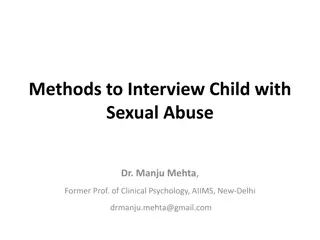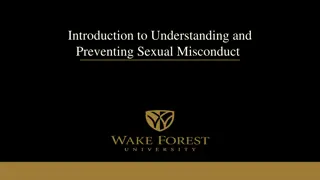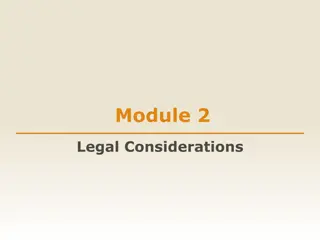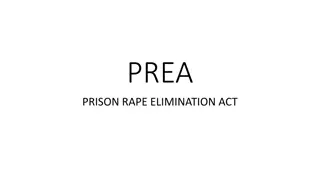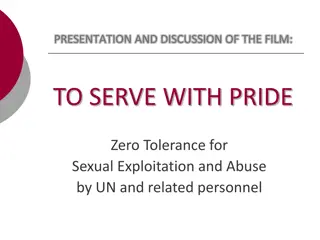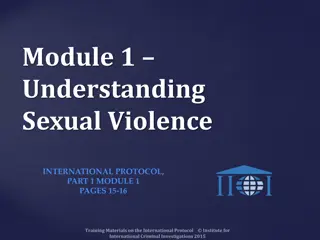Preventing Sexual Exploitation and Abuse in Humanitarian Work
Sexual exploitation and abuse (SEA) in humanitarian settings involves acts of gross misconduct by workers, including abuse of power for sexual purposes and engaging in sexual activities with minors. Six core principles guide the prevention of SEA, emphasizing the prohibition of sexual relationships with beneficiaries, reporting suspicions of abuse, and creating a safe environment. The difference between SEA and sexual harassment lies in the abuse of power dynamics. Acts of SEA include sexual assault, demanding sex for assistance, and forcing individuals into prostitution or pornography.
Download Presentation

Please find below an Image/Link to download the presentation.
The content on the website is provided AS IS for your information and personal use only. It may not be sold, licensed, or shared on other websites without obtaining consent from the author. Download presentation by click this link. If you encounter any issues during the download, it is possible that the publisher has removed the file from their server.
E N D
Presentation Transcript
PREVENTION OF SEXUAL EXPLOITATION AND ABUSE TAFARA ANESU MACHEKA
DEFINITIONS Sexual exploitation: Actual or attempted abuse of a position of vulnerability, power, or trust, for sexual purposes, including, but not limited to, profiting monetarily, socially or politically from the sexual exploitation of another. Sexual abuse: Actual or threatened physical intrusion of a sexual nature, whether by force or under unequal or coercive conditions. SEA also includes sexual relations with a child, in any context, defined as a human being below the age of 18 years. SEA involves behaviour of Humanitarian workers and collaborators towards third parties, referred to as beneficiary populations
6 CORE PRINCIPLES SEA 6 CORE PRINCIPLES SEA 1. Sexual exploitation and abuse by humanitarian workers constitute acts of gross misconduct and are therefore grounds for termination of employment. 2.Sexual activity with children (persons under the age of 18) is prohibited regardless of the age of majority or age of consent locally. Mistaken belief regarding the age of a child is not a defence. 3.Exchange of money, employment, goods, or services for sex, including sexual favours or other forms of humiliating, degrading or exploitative behaviour is prohibited. This includes exchange of assistance that is due to beneficiaries. 4.Sexual relationships between humanitarian workers and beneficiaries are strongly discouraged since they are based on inherently unequal power dynamics. Such relationships undermine the credibility and integrity of humanitarian aid work. 5.Where a humanitarian worker develops concerns or suspicions regarding sexual abuse or exploitation by a fellow worker, whether in the same agency or not, he or she must report such concerns via established agency reporting mechanisms. 6.Humanitarian workers are obliged to create and maintain an environment which prevents sexual exploitation and abuse and promotes the implementation of their code of conduct. Managers at all levels have particular responsibilities to support and develop systems which maintain this environment.
WHAT IS THE DIFFERENCE BETWEEN SEA AND SEXUAL HARASSMENT? SEA occurs when a position of power is used for sexual purposes against a beneficiary or vulnerable member of the community. Sexual harassment occurs when differences in power between staff members, are abused (verbally, through touch, use of inappropriate images, etc).
ACTS OF SEXUAL EXPLOITATION AND ABUSE INCLUDE: Sexual assault. Demanding sex in any context or making sex a condition for assistance. Forcing sex or someone to have sex with anyone. Forcing a person to engage in prostitution or pornography. Unwanted touching of a sexual nature. Refusing to use safe sex practices.

 undefined
undefined

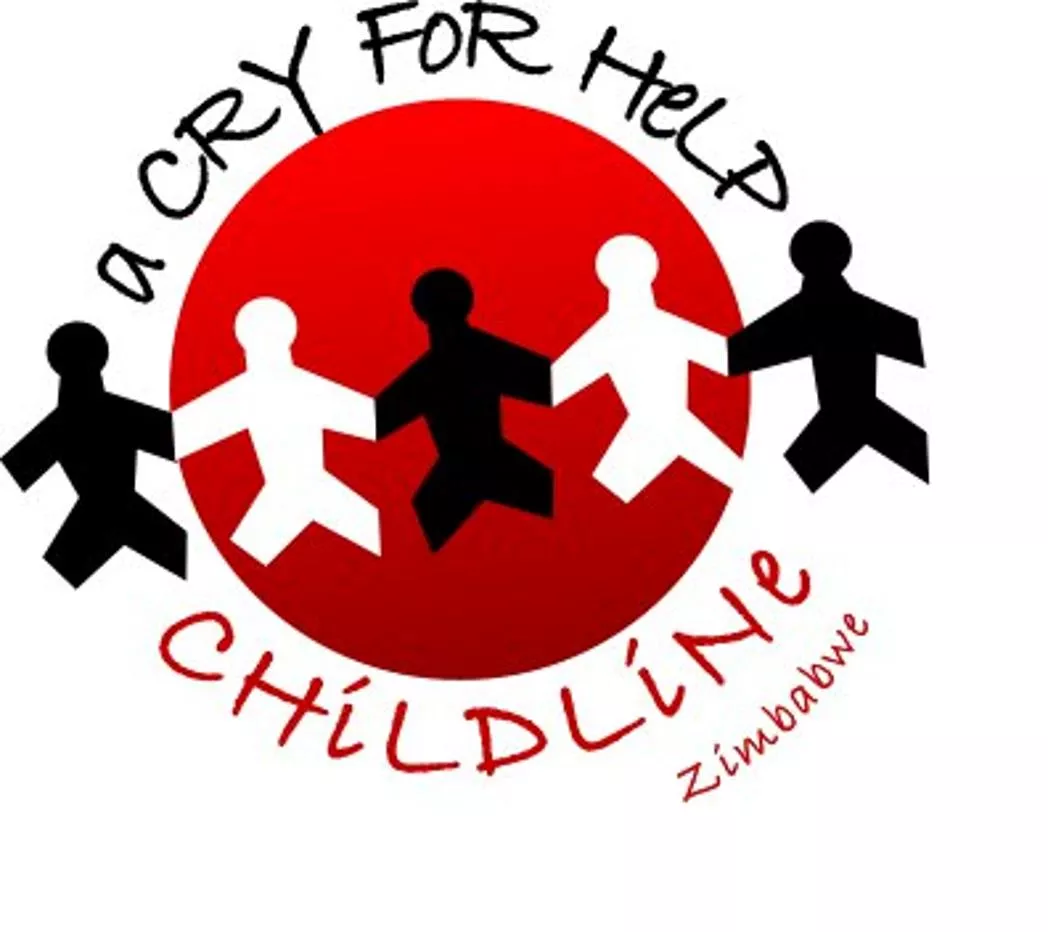
 undefined
undefined




